When you close your eyes at night, the last thing you want is to hear wall-shaking, bed-rattling snoring. Maybe it’s coming from your partner and is causing you long, sleepless nights. Or maybe you’re the one responsible, having found out by waking up startled from particularly loud breaths. Either way, snoring problems can leave you groggy and exhausted the following day. It’s nothing to be ashamed about, but how can you cope? If you don’t know how to stop snoring, have no fear, we have some answers to share with you.
First, remember that if you’re the culprit, you’re not alone. Although men are more likely to snore compared to women, there is still a large handful of women that are affected. In the United States alone, nearly 90 million people report snoring on a regular basis.[1] Aside from the daily impacts of snoring, such as daytime tiredness, it’s important to address this as it could be a sign of a bigger health problem.
Now, let’s move forward to see what causes it, some snoring remedies, and how to stop snoring once and for all. Grab your pajamas and eye mask too, because after reading this you’ll be one step closer to a great night of sleep.
What Causes Snoring?
To understand how to stop snoring problems, it’s important to first understand what causes snoring. It’s not too complicated, so bear with us. Basically, your throat relaxes when you sleep and your airway narrows, making inhales and exhales a bit shorter and rhythmic. But when you have some kind of obstruction to your narrowed nighttime throat, the air shakes your throat walls, causing the snoring sound.[2] Here are a few different factors that cause snoring and make you more at risk.
1. Weight

Being overweight puts an added stressor around your airways. Typically this is from additional fatty tissue in the neck, closing the airways more than normal.[3] This causes snoring because your throat has less space to move air naturally down your throat.
2. Age

As you age, the muscles in your throat relax more, resulting in a narrower passage at night.[4] If you already snore, it could get more common or louder with age. Aging is a natural thing, but snoring can cause health problems. So it’s important to take action when you notice snoring coming up with age. As you get older, learning how to stop snoring becomes even more important to your health.
3. Sleeping position

You’re more likely to snore when you lie on your back, as your tongue will fall to the back of your mouth and obstruct airflow, causing some vibrations.[5] If you have allergies or a cold, laying on your back will make snoring much worse too.
4. Body abnormalities

If you have any nose or throat enlargements, such as your tonsils or nasal polyps, or a deviated septum, this can affect your airways at night too. Sometimes you can have surgery to correct this if it’s the source of your snoring.
5. Muscle relaxants or alcohol consumption

Drugs that relax your muscles could increase your risk of snoring. If you drink alcohol one night, you’ll probably snore more than normal too.[6] But even if your snoring isn’t happening on a daily basis, you still might want to consider finding a snoring solution for those nights it does act up.
6. Allergies
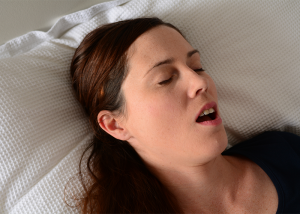
Allergies really impact your sinuses and can close off your airways. When you have allergies, the mucus build-up and swelling makes it much harder to breathe, especially at night. This can lead to snoring or make a regular snorer even worse.
Important: Know the symptoms of snoring: feeling unrested when waking up, confusion during the day, impaired concentration, morning headaches, possible weight gain, and (you guessed it!) feeling tired throughout the day from disrupted sleep.
Why Should I Even Care About Finding a Snoring Solution?
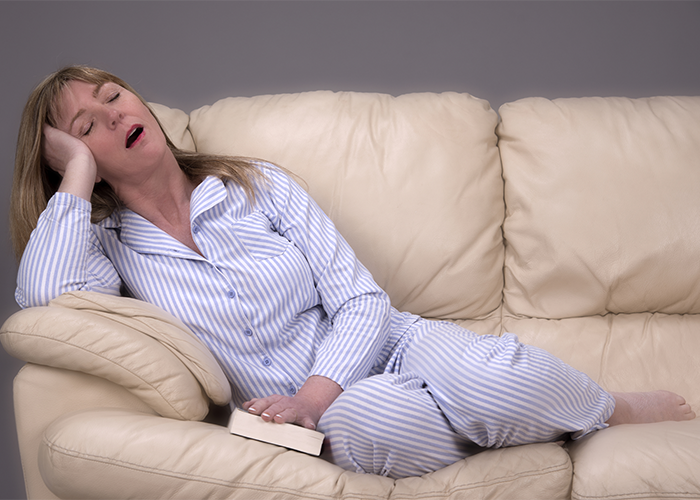
Many people live their entire lives snoring and never seek help on how to stop snoring. However, this isn’t the recommended route to take. For some, it’s clear why that is. Perhaps you suffer from serious daytime lack of energy or functionality because of snoring problems and know you can’t go on like that any longer. But for others who seem to be unaffected by snoring at night, it’s not as harmless as you might think.
Actually, snoring can disrupt your quality of sleep, even if only slightly, to the point that your future health could suffer. One study gave evidence that women who slept less than the average of seven hours per night and who were frequent snorers in the past had poorer breast cancer prognosis.[7] It might seem like a big jump, but it goes to show the important link between your quality of sleep and future health impacts.
Fun Fact: Did you know that people who are sleep deprived score lower on memory tests?[8] If you feel like your short-term memory is not as good as it was on vacation, you’re probably right. Try giving yourself an extra hour of sleep to help your brain recover from too little sleep.
Another test that tracked pregnant women showed that moms who snored had a greater risk factor of delivering through C-section. It also showed that women who started to snore during pregnancy were more likely to deliver in an emergency C-section.
Researchers encouraged women to be screened during pregnancy for sleep-related disorders.[9] But whether you’re pregnant or not, getting tested for snoring can be a great way to maintain a healthy life and ensure a healthy future. Learning how to stop snoring is a step in the right direction for your general health and wellbeing.
Do Anti-Snoring Devices Actually Work?
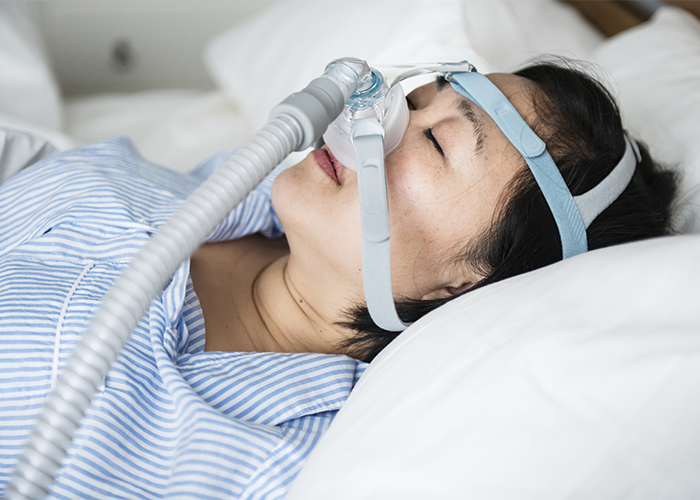
Pharmacies and drug stores are crawling with anti-snoring devices and tools that claim to change your entire life. But do these really hold the secret to how to stop snoring? Well, it turns out some of these might be worth a try.
Of course, snoring solutions can be tricky as there are different causes of snoring. Once you determine the cause, finding a solution for how to stop snoring might be easier. If you don’t know what the issue is, you can test out solutions to see what works for you. Here are some anti-snoring devices that you might want to try for yourself if you’re wondering how to stop snoring.
1. Mandibular Advancement Device (MAD)
Known as the “how to stop snoring mouthpiece”, this mouthguard-shaped device is pretty effective. It works by slightly moving your jaw forward when you wear it. On top of that, it’s cost effective too. One study compared MAD with CPAP, a treatment that tightens the tissue and helps make your airways wider. It concluded MAD was just as effective when used continuously, but MAD was more used because of its cost availability.[10]
2. Anti-snoring nasal strips
These are a common go-to solution for snorers. However, these nasal strips will only work when the cause of snoring is a swollen or tight passage in the nose. They are sticky strips that you place horizontally on your nose that pull the two sides of your air passage open. The Breathe Right brand of nasal strips leave such a positive impression that some athletes even use them to inhale deeper for training and performance.[11]
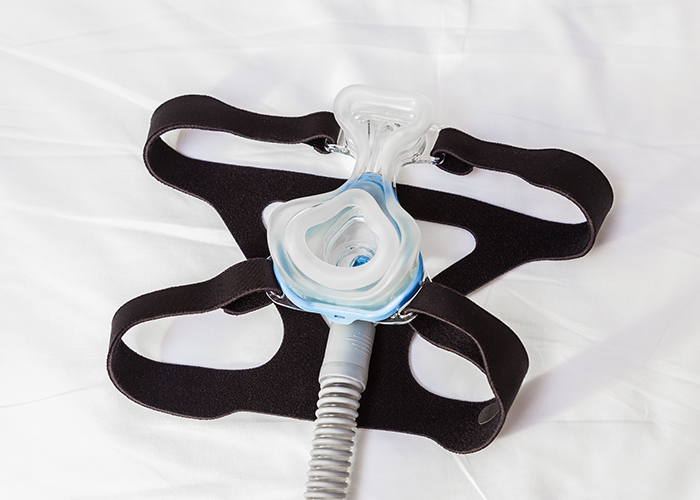
3. Chin strap
Sometimes, the solution for how to stop snoring is simple. If you snore just because your mouth falls open at night, a chin strap can be a useful solution. This band fits snug around your head and cradles your chin. This way, your mouth doesn’t fall open at night and keeps you snore-free. Chin straps might work well for some people, but it isn’t a guarantee.
The American Sleep Association notes that chin straps might not work if you snore because of another health issue, as it isn’t targeting the main problem.[12] Additionally, if you have a cold or allergies, breathing through your nose at night might be too difficult. It could be worth a try as it’s a cheap and non-invasive fix, but be weary it might not be your solution.
4. Anti-snore pillows
Sometimes, snoring happens because your tongue falls backward as you lay on your back. An anti-snore pillow might help with that. Basically, anti-snoring pillows inflate as needed during the night to battle snoring. They come with a microphone to keep at your bedside table too. The microphone is triggered when you snore to inflate the pillow to alleviate your airways.
While anti-snore pillows don’t have enough research to fully back them up as a solution for all snorers, there are studies that track snoring levels based on body position alone. One study like such found that using a head positioning pillow did improve snoring sounds immediately.[13] This could support the idea that your body position and the pillow you use impact how loudly you snore.
How to Stop Snoring Using Snoring Remedies
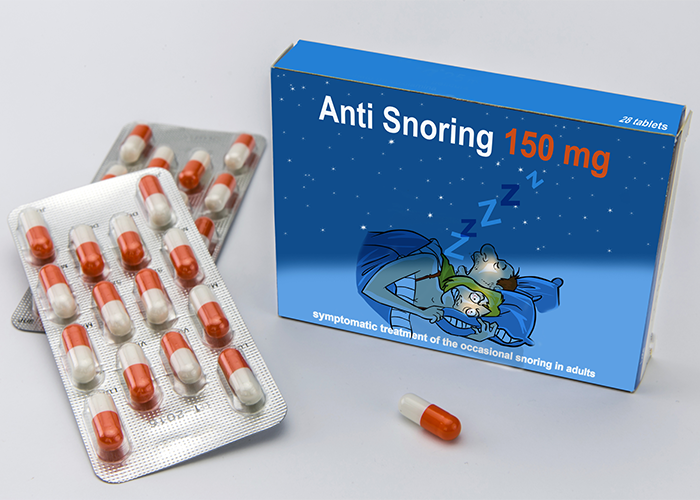
So, you’re still having trouble figuring out how to stop snoring. If your snoring can’t be fixed by a store-bought device, you can try some simple remedies to improve it on your own. It might be a trial and error process at first, but soon you’ll find a sleeping remedy that works best for you.
1. Elevate your head
Because sleeping on your back plays a big part in snoring, this can be an easy fix. If you just can’t get to sleep in another position, such as lying on your side, try propping your head and back up a bit more with pillows. This will prevent your tongue from falling backward too much and allow air to pass by easier.
2. Clear your nose
If snoring occurs more when your sick or during allergy season, you should focus on clearing your nasal passages before bedtime. Some ways to do this are with nasal spray, which can alleviate inflammation, or with a neti pot, which can rinse mucus and ease inflammation from your sinuses.
3. Use a humidifier
Sometimes your nose and throat get irritated when it’s cold outside, or when the air is too dry. This causes inflammation and can cause you to wake up feeling like your throat is cracked and dehydrated. Adding a humidifier to your bedroom can help combat dry air and thus soothe your throat and snoring issues.

4. Avoid sedatives and alcohol
While it might seem like a good idea to pop in a sleeping pill or have a glass of wine to help you sleep through your snoring, this actually makes it worse. You should avoid substances that will cause your muscles to relax as this will make your airway restrict further. Not only that, but cutting out these substances from your routine is also an easy test to see if your snoring is caused by using them.
5. Lose weight if you’re overweight
For those snorers who are overweight, a long term goal to cure snoring could be shedding some pounds. This will allow your neck and body to slim down and release some of the stress that might be placed on the throat when sleeping.
Tip: If you aren’t sure if you snore, but you have symptoms, set up a microphone or camera near your bed a few nights during the week. This way, you can play back the tape and see if you are snoring, and then seek help.
When Should I See A Doctor?
If you’ve exhausted the remedies list and still don’t know how to stop snoring, it’s time to see a doctor. There’s a chance you might have a deeper underlying problem. But what exactly should you be watching out for to know if you should make an appointment? There are a few common signs to note down that might mean it’s time to head to the doctor.
1. Abruptly jolting awake at night

If you or your partner notices that you’re waking up suddenly at night (even if just for a split second) then falling back asleep, it might mean you have sleep apnea.
Sleep apnea is a common condition that causes snoring and definitely needs medical attention. In short, if you have sleep apnea your airways can completely close off at night for seconds at a time. When this happens, you’re brain reacts to the lack of oxygen and wakes you up so you can breathe. Not only is this dangerous, but it disrupts your sleep many times through the night and can cause loud snoring.
2. Constantly not able to breathe through your nose
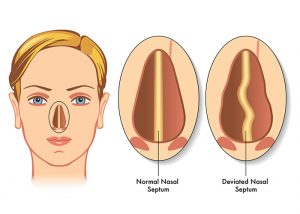
If you notice breathing through your nose is constantly a struggle, you might have a deviated septum or chronic nasal congestion.
A deviated septum will block your nose openings and prevent you from using one or both passageways for air. If you have a kind of chronic nasal congestion, mucus or swelling might be the culprit of your snoring. With a doctor’s help, you can find some solutions.
3. Falling asleep randomly during the day or at inappropriate times

If you are always sleepy and fall asleep seemingly uncontrollably during the day, you might have narcolepsy.
This is a neurological sleep disorder and can be dangerous if you are unaware of yourself falling asleep at times. Some symptoms besides daytime sleepiness can include hallucinations and sleep paralysis too.[14] While this is a lifetime disorder, a doctor can help you identify your symptoms and manage them better.
Medical Treatment Options for Serious Snorers
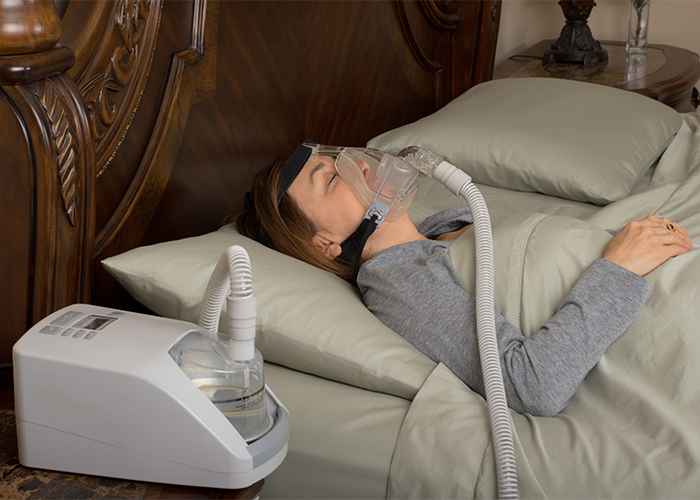
If you end up at the doctor for your snoring, they might suggest that you need a more serious intervention method. Luckily, there are medical procedures to help you snooze. Let’s see what options are out there and what will best suit your needs.
1. CPAP mask for sleep apnea
A CPAP mask goes over your mouth at night and pushes air into the back of your throat. This sounds intense, but is highly effective in helping sleep apnea sufferers. Make sure you use this device with a doctor’s approval.[15]
2. Dental procedures for jaw work
Sometimes, snoring is caused by misplaced jaws. You see, if your jaw leaves you with an overbite, or falls backward when you lay down, it can obstruct your throat and cause snoring. Sometimes braces or another form of dental work can slowly move your jaw so that it doesn’t negatively impact your sleep cycle anymore. If your doctor can prove that your jaw is the reason for your snoring, a dental procedure can be a permanent solution.
3. Somnoplasty to tighten throat tissue
This operation is relatively newer to the market. It involves using radio waves to shrink your airway tissues, thus improving or eliminating snoring. One trial showed that it was effective in reducing the loudness of snoring in all patients after the treatments finished.[16] According to another study, a somnoplasty can also help sleep apnea too.[17]
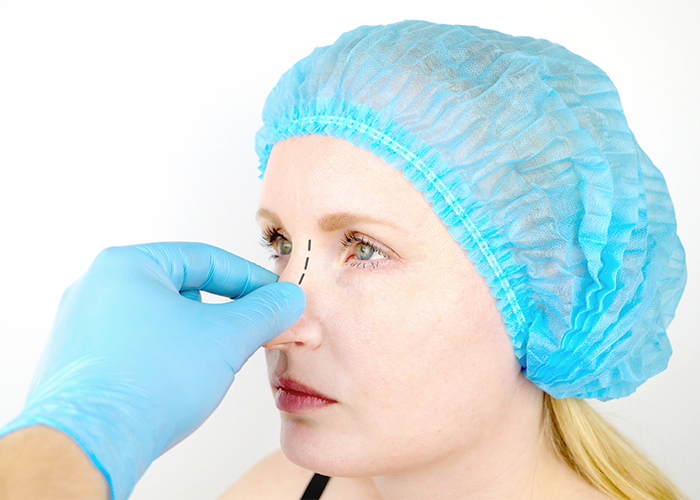
4. Septoplasty to realign your nose
If your nose seems to be the main issue with your snoring, it might be because you have a deviated septum. This means that one or both airways in your nose are obstructed by your bone and cartilage. A septoplasty can totally open the needed airway and allow you to breathe through your nose like normal. This could be a quick solution for how to stop snoring if you notice your nose is causing the trouble.
5. Tonsillectomy to remove your tonsils
Tonsillectomies are pretty common in kids with frequently swollen or troublesome tonsils. Adults with swelling should look into this as well because it can really open up your throat and allow more space for air to pass through. Talk to your doctor to find out if this step makes sense in your ‘how to stop snoring’ journey.
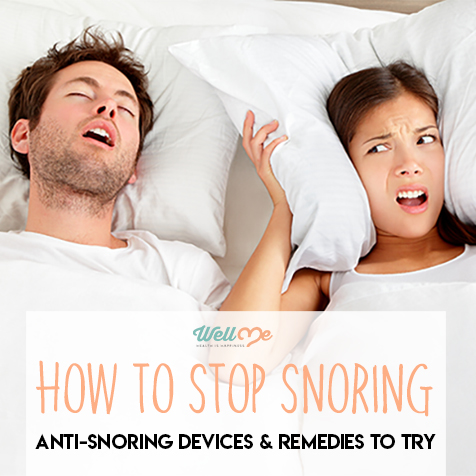
Conclusion
Snoring doesn’t have
to be a lifelong battle, and you don’t have to fight it alone. Now you should
have the tools and information to start improving, and even permanently stop,
snoring problems for yourself or your partner. Try some of the remedies above
to test what works best for you, and start the journey to better sleep. Now go
catch some Z’s and dream deep.
References
- [1] https://www.sleepfoundation.org/articles/snoring-and-sleep
- [2] https://www.sleepfoundation.org/articles/snoring-and-sleep
- [3] Sleep Foundation. https://www.sleepfoundation.org/articles/snoring-and-sleep
- [4] https://www.sleepfoundation.org/articles/snoring-and-sleep
- [5] https://www.sleepfoundation.org/articles/aging-and-sleep
- [6] Sleep Foundation. https://www.sleepfoundation.org/articles/aging-and-sleep
- [7] https://aasm.org/study-links-sleep-duration-and-frequent-snoring-to-poorer-breast-cancer-survival/
- [8] https://www.sleep.org/articles/fun-facts-about-sleep/
- [9] AASM. https://aasm.org/snoring-during-pregnancy-is-a-risk-factor-for-adverse-delivery-outcomes/
- [10] https://www.ncbi.nlm.nih.gov/pmc/articles/PMC5803051/
- [11] https://journals.sagepub.com/doi/abs/10.2500/105065897781285990
- [12] Sleep Association. https://www.sleepassociation.org/sleep-treatments/snoring-chin-straps/
- [13] https://www.ncbi.nlm.nih.gov/pmc/articles/PMC4676069/
- [14] https://onlinelibrary.wiley.com/doi/full/10.1111/j.1365-2869.2005.00476.x
- [15] Sleep Foundation. https://www.sleepfoundation.org/articles/sleep-apnea
- [16] https://onlinelibrary.wiley.com/doi/full/10.1097/00005537-200010000-00020
- [17] https://europepmc.org/abstract/med/10663047








